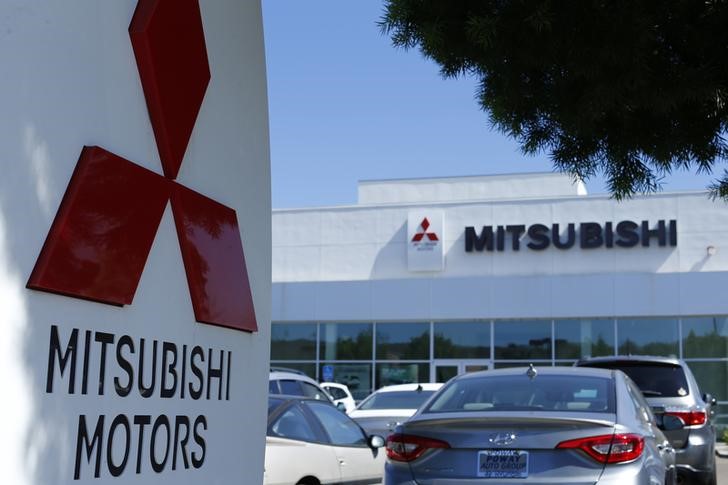This post was originally published on this site
https://i-invdn-com.investing.com/trkd-images/LYNXMPEI6N0C7_L.jpg
TOKYO (Reuters) – Japan’s asset managers nudged the volume up another notch at shareholder meetings this year, increasingly opposing management proposals and adding momentum to a policy of attracting foreign investors initiated by slain former Prime Minister Shinzo Abe.
Nikko Asset Management, Asset Management One and others have become distinct voices in Japan’s new-found activism, countering foreign criticism of asset managers’ rubber-stamp voting.
The pair opposed management at a domestic firm by voting for board nominees proposed by a foreign investor, while in another high-profile case, company management canned a proposal after some asset managers supported a foreign investor’s objection.
This year’s cases add to a gradual change in voting sparked by Abe’s corporate stewardship code in 2014, and which gained impetus in 2017 with a revision requiring the disclosure of voting records for each agenda item at shareholder meetings. Abe was shot and killed this month during an election campaign.
The revision “raised asset managers’ commitment because every manager is held accountable for each voting decision,” said Katsuya Kikuchi, associate director at Tokio Marine Asset Management.
Increased domestic activism is likely to help firms burnish credentials on issues as varied as the environment, society and governance, raising their appeal for foreign investors looking to increase exposure to Japan, asset managers said.
Domestic asset managers have voted “against management in increasing amounts every year for the last five years,” said Seth Fischer, founder of Hong Kong-based Oasis Management, which has invested in Japanese firms including Toshiba (OTC:TOSYY) Corp.
Still, only a fraction of shareholder proposals gain support from domestic institutional investors. Last year, these investors supported just 6.8% of such proposals on average at shareholder meetings served by electric voting platform operator ICJ, versus 15% among foreign counterparts.
SUPPORTING ROLE
Foreigners lead shareholder activism in Japan with domestic asset managers mainly playing a supportive role, though some investors have said they hope domestic managers will take more initiative and make their own proposals for company management.
Some domestic asset managers supported Oasis which queried related-party transactions at Fujitec Co Ltd and opposed a management proposal to nominate its chief executive to the board of directors. The elevator maker withdrew the proposal an hour before its annual shareholder meeting last month.
In another vote this year, Singapore-based 3D Investment Partners’ campaign to bring its nominees onto the board of IT firm Fuji Soft Inc received unexpectedly high support of nearly 40%.
Those voting in favour included Mitsubishi UFJ (NYSE:MUFG) Financial Group Inc’s Mitsubishi UFJ Trust and Banking, Mizuho Financial Group Inc’s Asset Management One and Sumitomo Mitsui (NYSE:SMFG) Trust Holdings Inc’s Nikko Asset Management.
“Before 2014, we’d hear investee firms moan about foreign investors’ strict voting policies,” said Hidenori Yoshikawa, corporate governance consultant at Daiwa Institute of Research. “But as domestic institutional investors tightened their stance, we now hear investees say domestic investors are stricter.”
Domestic asset managers have been less supportive of company management than some global peers, showed a report by shareholder advisory SquareWell Partners which analysed voting for incumbent director elections at Japan’s 100 biggest firms.
Average support rates from 2019 to 2021 stood at 95.9% at Asset Management One, 94.2% at Nikko Asset Management and 88.9% at Sumitomo Mitsui DS Asset Management. That compared with 99.9% and 99.7% at U.S. peers Vanguard and BlackRock (NYSE:BLK) respectively.
GREATER SCRUTINY
Still, it is rare for an activist shareholder motion to win approval in Japan where only four cases have been successful, partly as management is often insulated by passive ownership.
But domestic asset managers are increasingly turning on management-protecting schemes, such as takeover defences and cross-shareholding arrangements.
Daiwa Securities Group Inc’s Daiwa Asset Management and other major asset managers this year tightened rules for director voting at firms engaged in cross-shareholding, which still account for about 30% of Japan’s $6 trillion stock market.
Also driving change is greater scrutiny from asset owners such as the Government Pension Investment Fund and Pension Fund Association for Local Government Officials, asset managers said.
There is also room for improvement in board independence and diversity, said Takuya Iyoda, chief analyst at Nissay Asset Management. Rules could be tightened to the extent that boards must have a majority of independent directors, he said.
“I wouldn’t be surprised if requirements for diversity eventually expand to include not just women but also non-Japanese.”

